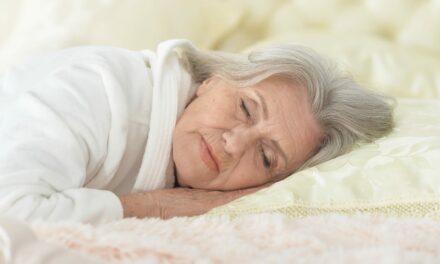ResMed and the Dr. Oz Show’s partnership, SleepScoreLabs, announced the results of its survey of over 20,000 people at CES 2017, according to a press release on businesswire.com.
“This is the largest objective consumer sleep study ever evaluated, giving us the tools to make a real impact on sleep deprivation,” said Colin Lawlor, CEO of SleepScore Labs. “This historic survey shows how the SleepScore by ResMed™ technology and its capabilities can be used across the $58 billion dollar consumer sleep industry to evaluate the performance of sleep products and services and to improve them, so those products and services can be more helpful to someone’s health. The sheer numbers of people with sleep issues are staggering, but solving the problem has until now been a shot in the dark.”
SleepScore insights include:
- 79% of the population sleeps less than the 7 hours recommended by the American Academy of Sleep Medicine – Most Americans sleep one hour less. To put this in context, a recent study by AAA reported that sleeping as little as one hour less than recommended doubles the risk of a traffic accident.
- Women sleep longer than men – Men average 5 hours, 45 minutes, while women average 6 hours, 9 minutes.
- On average, Americans go to bed at 10:21 pm and wake up at 7:41 am. People in the Pacific time zone go to bed the latest, at 11:17 p.m., and people in the Eastern time zone wake up the earliest at 7:40 a.m.
- New York vs. Los Angeles – New Yorkers go to bed earlier than Los Angeleans (by just under three minutes).
- Exercise is good for sleep – Any amount is helpful, but the optimal amount is 30 minutes, which correlates with 14 minutes of extra sleep per night.
- Caffeine – Three or fewer cups of coffee didn’t notably affect average sleep time, but those who drank four cups or more slept 26 minutes less.
- Alcohol – Those who had one or two drinks slept an average of 16 minutes more than people who had more than two drinks – or none at all.
- Children can be both good and bad for sleep – Men with 0-1 children get the most sleep, and women with 2-3 children get the most sleep. Having more children seems to impact men more – they lose 45 minutes of sleep per night with 4 or more children, whereas women with 4 or more children only lose 25 minutes.
- Mattresses matter –The type of mattress people sleep on appears to make an average difference of 20 minutes sleep per night
Read the whole story at www.businesswire.com



